A decade or so ago, my buddy Kirk Deeter, now a colleague of mine at Trout Unlimited, flew north to Lake Athabasca for some serious late-summer pike fishing.
Deeter, in addition to being an author and the editor of TROUT Magazine, is also a fly-fishing guide, so it was interesting to watch him interact with the native Dene First Nations guides we fished with over the course of a week.
The native guides were tough nuts to crack, but once we got them to talk about the lake, the fish and the surrounding environment, we gleaned some important nuggets of information about why we fished certain types of water one day, and completely different water the next. And Kirk was an excellent client.
“Fish here,” one our guides would say as he cut the motor of the skiff. “Fish deeper.”
Kirk would grab the fly rod loaded with the sink-tip line, step to the bow of the boat and simply say, “OK.”
It was a good example for me to follow. Having been guided a few times prior to that trip, I’d learned that the questions can come later—the guides are there, in their minds, to put you on fish. So, for crying out loud, do the fishing. The questions are good for shore lunch or over a beer when it slows down on an afternoon float. It took me some time to quell my curiosity, but, thanks to Kirk, I’ve become a much better client.
One evening after a day on Lake Athabasca that included everything from tossing poppers tight against weed beds to dredging deep along submerged shoals, Kirk and I chatted over a few glasses of whiskey at the lodge.
“Would you rather guide a brand new angler or the CEO of a Fortune 500 company?” he asked me. Not being a guide (but being a frequent “host” for friends and new anglers on the trout waters near my eastern Idaho home), I had a quick answer.
“A brand new angler,” I said.
Kirk nodded.
“Why?” he asked.
I thought about for a minute, and it became perfectly apparent. The CEO of a major corporation likely got to his or her lofty position by being that Type-A personality—someone who is not only loaded with questions, but someone who also an aggressive fan of data and evaluation. They’re not people who are accustomed to just doing as they’re told.
“I think guiding a corporate CEO would be an exercise in futility,” I said. And I meant it in the best possible way. Anyone who rises to the level of corporate CEO has done so with a purpose—they’ve pushed and pulled and fought to get where they are and they’ve pulled those around them up with them. They’re not, intuitively, people who can simply follow instructions and learn from doing. “I think they’d spend more time asking questions than they would fishing.”
Kirk agreed. As he put it, had someone with a more aggressive personality been in the boat with us while we were pike fishing — particularly with our tight-lipped guides—he or she wouldn’t have simply started fishing when the guide instructed them to “cast here.” Instead, they would have asked, “Why?”
I get it. It’s in our nature as anglers to be curious about what makes fish tick, and why they occupy certain habitat at certain times, particularly when we’re fishing for quarry we don’t get to go after very frequently.
A few years after that trip, I was fishing the flats of the Lower Laguna Madre with a surly guide who simply wouldn’t tolerate questions. We motored around the grass and sand flats of the bay all day long, and I endured what I still believe to be, to this day, some pretty serious abuse. As a trout guy fly fishing for big reds in saltwater, I not only had a casting learning curve to get through, but also a guide who would rather scold my casting than explain to me why he chose to fish this stretch of water over another location. After a bit, I recalled my experience with Kirk in northern Saskatchewan, and I just shut it down and cast.
And, not surprisingly, I caught a few fish.
And after a day on the water, over a beer with the guide, he explained to me why we fished where we did, and why he timed it like he had. He was clearly more accustomed to anglers with more saltwater experience than I had at the time, but he also wanted to put his client on fish—having a philosophical discussion with his client wasn’t on his short list of things to do in the eight hours we spent chasing redfish.
Now, for me, I’ve gotten pretty good about gauging a guide’s desire to interact. If they’re chatty, I’ll ask more questions. If they’re not, I’ll follow instructions. And I may not be the average client—while I like to catch fish, I also like to enjoy the wallpaper. On a trip to Chetumal Bay last spring, our guide out of Xcalak, Mexico, was a diminutive Mayan named Nato. We spent an amazing day chasing bonefish in the bay, but after a while, we asked him to show us around a little. We spent the last couple hours of the day motoring through the mangroves on the border with Belize looking for crocodiles and manatees. Nato was more than happy to show us what makes his home special, and were happy to put the rods down for a bit and take in something new.
I suppose there’s a lesson here for guides, too, but it’s not place to teach it. Instead, I’ve become a more philosophical client—at least on the inside—and a better judge of what I’m dealing with when I get in the boat.
And sometimes, as Kirk noted from his perspective as a guide, it’s better to just shut up and fish. Using this philosophy, guides have helped me catch permit, pike, bonefish, tarpon, snook and trout from the boreal forests of the sub-Arctic to the tropics of the Caribbean.
“Shut up and fish.” Words to fish by.

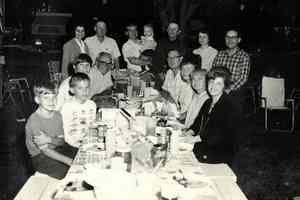










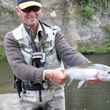








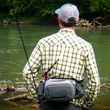



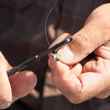
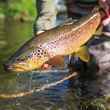

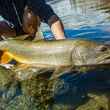
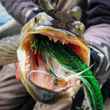

Comments
Joel Cummings replied on Permalink
Thanks for an interesting article. I have experienced most of the same types of guides that you mentioned in your article. One Orvis endorsed guide was very frustrated with me and got angry because I could not cast 90 feet into a stiff wind with an 8 wt when we were chasing spooky reds in the Jacksonville FL area. What the guide missed was that he diminished my experience not because I didn't catch fish but because of his crappy attitude. I don't agree with your premise that you should "Shut up and Fish" It should be the guides responsibility to determine what kind of fisherperson you are and tailor their approach to maximize your enjoyment. After all, the person that hired the guide is the customer. I would say roughly 50 percent of the guides I have experienced could use some improvement in their customer service skills.
Gerald replied on Permalink
I agree with the above comment, I also have fished with all types of guides, some were an absolute ball to fish with even though it was a slow day on the water, others were surly enough that even though it was a good day for catching, I was ready to get off the boat by lunch time.
Sometimes catching fish is secondary to getting away from call reports, bumper to bumper traffic for hours on end and missed delivery date phone calls.
Pages